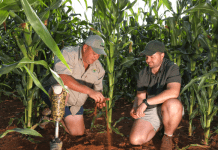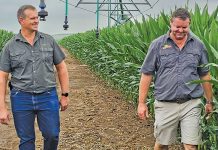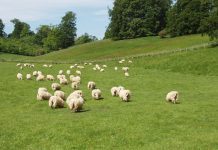
Investment firm Brait, in which Christo Wiese is the largest shareholder, is diversifying out of South Africa. His reason is that retailers are struggling because high unemployment and high levels of personal debt are putting the squeeze on household incomes.
READ:Mixed reactions from agri-leaders to SONA 2017
There’s also the fact that the rand has lost 22% of its value against the dollar over the past two years, and the prognosis for its future health remains grim. Wiese, estimated to be South Africa’s fourth- richest man, has already invested more than
R14 billion in the UK’s women’s retailer New Look. This is in addition to R12 billion invested in buying an 80% share in Virgin Active and an investment in a chain of frozen-food stores in Iceland.
According to Bloomberg’s Billionaire Index, Wiese is worth some R85 billion. If these figures are realistic, it means his offshore investments represent about 30% of his total wealth.
Other parts
Writing in the Dairy Mail recently, Koos Nel, head of Old Mutual’s Agrimark, refers to the SA 2014 Wealth Book, which reported that high net-worth individuals based in the country hold about 17% of their assets outside South Africa. Nel adds that the figure in most other parts of the world is between 20% and 30%.
In addition to the business problems already referred to, farmers have the spectre of land dispossession hanging over them. Whether this threat is real or not, it’s a risk that needs to be mitigated – through a diversification of your business interests.
A case in point
I was approached recently by a highly respected medium-scale farmer – let’s call him Harry. He urgently needed to refurbish an old water reticulation and irrigation system. The costs would be in the millions. Harry has been through some hard times, but now has a stable and consistently profitable business, and he has not spent this much in years.
In addition, all of his wealth is invested in the farm. He has never used his land as collateral for loans. As a result, the debt capacity of the business is substantial – far more than the few million required to upgrade the water system. The question I was asked was: “What would be the best way to finance the refurbishment?”
No answer
“Borrow the money,” I said without hesitation, “and use your own cash to make an offshore investment.” I emphasised the need to invest in some hard currency and to place all or part of the ‘land reform risk’ with the bank, which would come to his assistance if the security of their collateral was threatened.
I reminded Harry that the profitability of the farm meant he would be able to service the loan, and that with the interest tax- deductible, it would cost less than he had calculated.He listened carefully and went away, and I knew from the look on his face he would use his own cash. It will be a mistake. Whether small or large, it makes sense to spread your risk and diversify, and this means you must look at offshore investments.
This article was originally published in the 12 June 2015 issue of Farmer’s Weekly.








